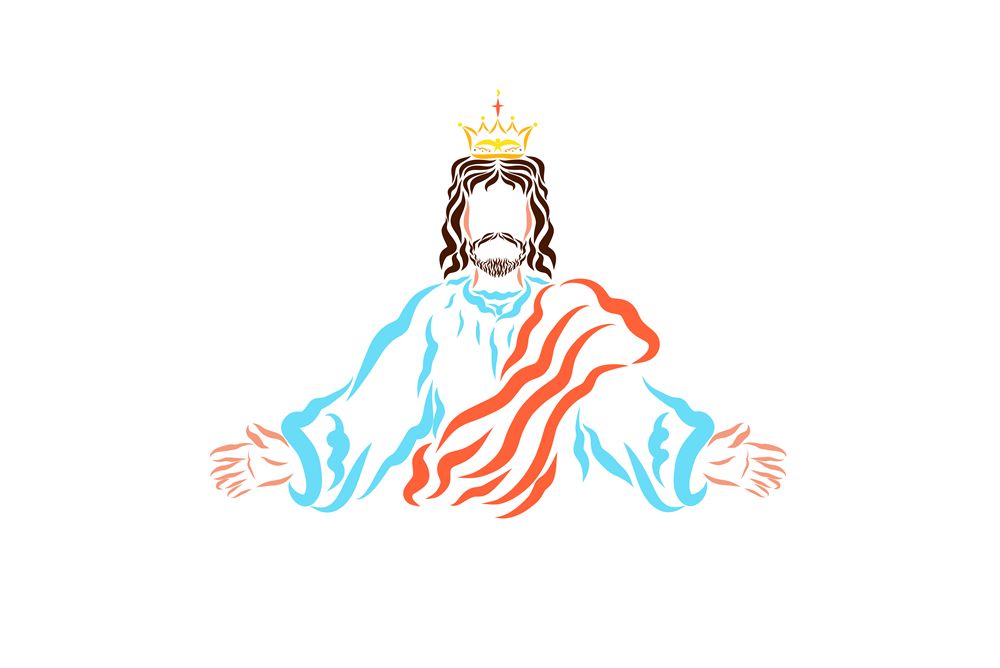ישוע המשיח
I have learned from my Nigerian friends that every name given to a child – and there are many! – has a meaning and is given by the family with the hope that the child will reflect qualities attributed to that name. I’m certain the same happens in other nations and cultures, as well. Unfortunately, all of this is lost in translation. I can surely admire a beautiful-sounding name but am totally oblivious to its deeper meaning.
The same is true regarding the name of Jesus, our Saviour. Let’s imagine a situation where Jesus is at a gathering where people have never heard of Him, and He is introduced to a guy named Herbert. Herbert says:‘Hi, I’m Herbert Sullivan. And you are?’
‘Hi, I’m Jesus Christ’
‘Oh, nice to meet you, Jesus!’
And that’s it. Herbert can move on to the next person.
What if Jesus had told His name in the original Hebrew – Yeshua Hammashiach? Herbert, being Jewish, would have raised his eyebrows and started a conversation.
So, what does the name mean? It means The Anointed Saviour. That is powerful, isn’t it?
The name Jesus Christ does not carry much power to a person who is unfamiliar with the meaning behind the name. We hear the name used in a casual manner on the streets, in films, social gatherings, you name it. It is often used as a byword and even a curse word. People don’t realise that they take the name of the One who was sent to save them in vain.
The importance of meaning and context become very clear when we read Matthew 1:21:
She will give birth to a son, and you are to give him the name Jesus, because he will save his people from their sins.
If we do not know that Jesus is actually Yeshua, which means salvation or the Lord Saves, the connection drawn in this sentence does not make sense.
Recently, more Christians have started to refer to Jesus as the Messiah and not Christ, and I believe this is a good development as the word Messiah means Deliverer in English. By contrast, Christ comes from the Greek word Christos, which is simply a translation of the word Messiah, which, in its turn, is transliterated into English as Christ.
The word Messiah – Mashiach in Hebrew – comes from the verb mashach, which means to anoint, rub or smear. By adding the smallest of Hebrew letters yud – we get the word Mashiach, The Anointed One.
Anointing with oil was a public ceremony in Biblical Israel to appoint people who were chosen by God for a special service. Priests and kings were anointed this way, while prophets received spiritual anointing directly from God when He called them to deliver His messages to the people of Israel. Aaron was the first High Priest to be anointed before the Israelite community (Exodus 40:12-15). David was anointed by the Prophet Samuel while still a shepherd boy to be the future king of Israel (1 Samuel 16:13). Moses was the most well-known prophet, anointed and called by God to deliver the Israelites from slavery and receive the law (Torah in Hebrew) whereby to live as God’s Chosen People. Moses was also the one who received a word about a future prophet that God would raise up:
I will raise up a prophet like you for them from among their brothers. I will put My words in his mouth, and he will speak to them all that I command him. Now whoever does not listen to My words that this prophet speaks in My Name, I Myself will call him to account. (Deuteronomy 18:18-19)
That Prophet (Navi in Hebrew) is, as we recognize in hindsight, our Lord Jesus/Yeshua the Messiah. To confirm this without any doubt, God Himself said on the Mount of Transfiguration:
Then a voice came out of the cloud, saying, “This is My Son, the One I have chosen. Listen to Him!” (Luke 9:35).
In addition to the anointing of the Prophet, Jesus carried both the anointing of the High Priest and that of the King.
In Hebrews 9, we read about Jesus’ work as our High Priest (Kohen Gadol in Hebrew).
In the Old Testament, the High Priest was a mediator between the people of Israel and God by performing the animal sacrifices that atoned for their sins. These acts foreshadowed what Jesus did for us as the ultimate High Priest – He Himself became the final sacrifice that was sufficient for paying for our sins once and for all. Right now, He is continuing His priestly activity by interceding for us at the right hand of God the Father (Hebrews 7:25).
Finally, Jesus is the Anointed King (Melech Hammashiach in Hebrew). According to scripture, His kingship was already established quite early in Israel’s history. When Jacob blessed his sons, he gave the following prophecy to Judah:
The sceptre will not pass from Judah, nor the ruler’s staff from between his feet, until he to whom it belongs will come. To him will be the obedience of the peoples. (Genesis 49:10)
In human genealogy, Jesus comes from the line of Judah. However, many Jewish people did not recognise Jesus as their Messiah the first time He came two thousand years ago, mainly because they expected a conquering Messiah-King, not a Servant Shepherd-King. Their expectations will be fulfilled at Jesus’ second coming when He returns to earth as the King of Kings and the Lord of Lords.
We read in Revelation 11:15:
Then the seventh angel trumpeted, and there were loud voices in heaven saying, “The kingdom of this world has become the kingdom of our Lord and of His Anointed One. And He shall reign forever and ever!”
Thinking back to the imagined gathering at the beginning – how would we respond if we happened to meet somebody who calls Himself Yeshua Hammashiach?

